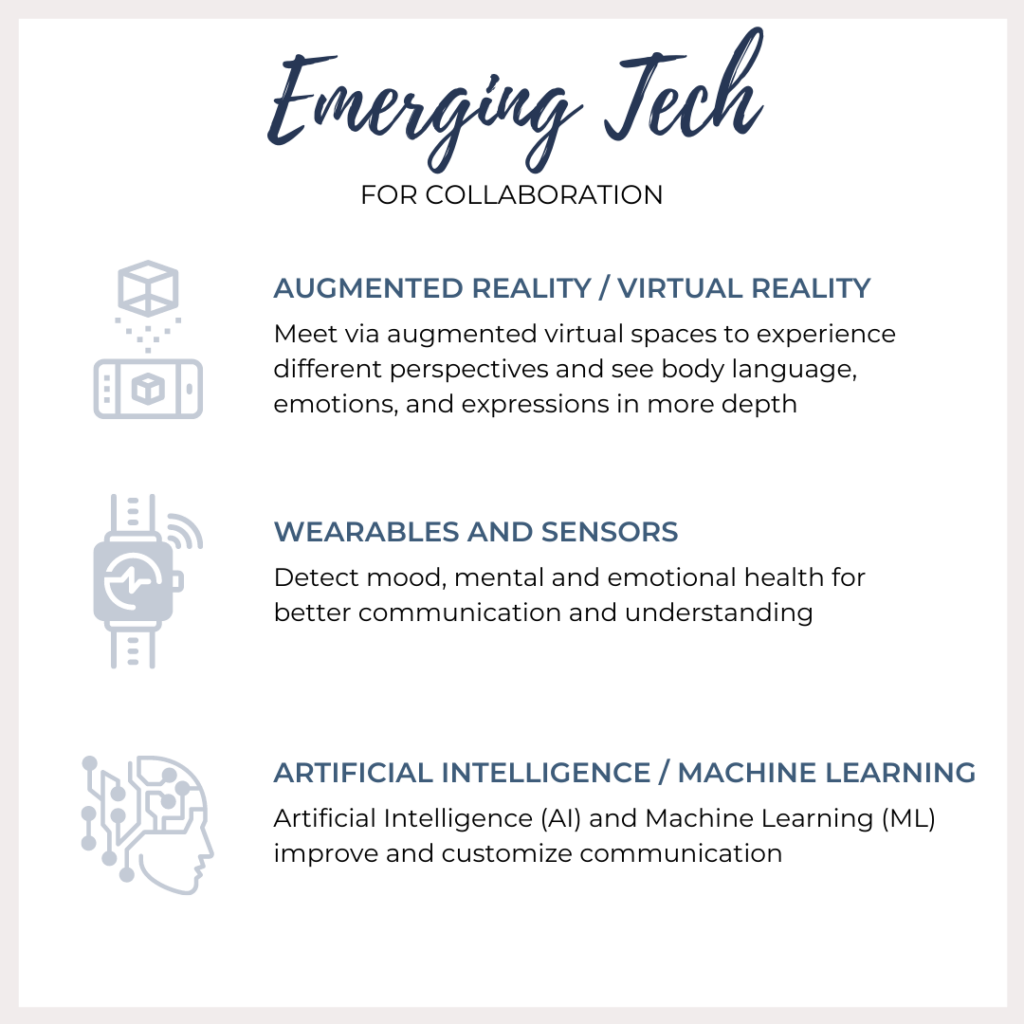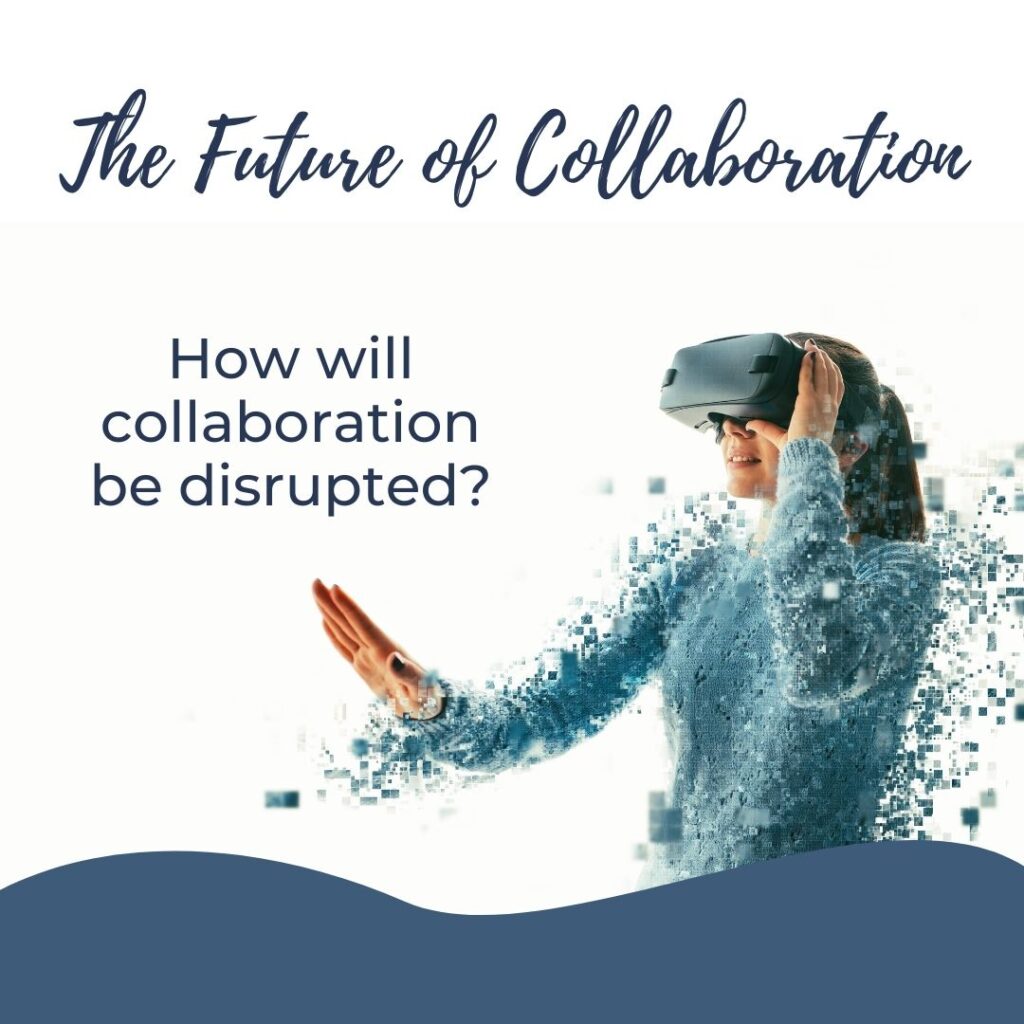Collaboration, Disrupted
Hundreds of startups were born from the pandemic, and in the coming years we will see more disruptive technology reshape collaboration. Additional considerations such as inclusion and sustainability will revolutionize the way we live and work.
Currently, platforms are missing the ability to decipher and detect non-verbal communication, and replicate impromptu conversations that spark brainstorming. While collaboration tools like Miro and Mural provide powerful teamwork spaces, new enhancements and platforms are headed our way. This includes artificial intelligence (AI) for meeting transcriptions, voice notes, and augmented communication. New technology will aim to bridge gaps, amplify the user experience, and drive more efficient collaboration.
Some may argue that virtual meetings have leveled the playing field and brought everyone into an equally sized square on the screen, while others feel they are still struggling to feel visible and connected. In virtual working environments, how can we mimic in-person human connection and engagement? How do we account for inclusivity, accessibility, and different personality types?
Leveraging technology, we can create a deeper sense of connection, inclusion and community, and modify ways of working. Even if we return to work onsite, virtual collaboration will continue across dispersed and global teams. Companies that can adapt to new ways of working and flex with technology will have a competitive edge.
The Future of Collaboration May Include:
- New workspaces, shared cubicles (“hoteling” which consulting firms have done for years), staggered shifts, and flexible working arrangements. Flexibility remains a key benefit and strategic investment
- Drop-in office hours, whiteboards, chats and multi-faceted collaboration spaces to simulate hallway conversations
- Augmented/virtual reality where we can meet in 3D spaces and see body language, emotions, expressions in more depth than via screen
- Wearables and devices that allow us to understand mental and emotional health
- In addition to synchronous communication, there will be more asynchronous communication to exchange information if you cannot attend a meeting (transcripts, videos, etc.)
- Haptic technology that simulates touch using tactile sensors, which can be helpful to demonstrate new products
- Chatbots, voice and facial recognition to interpret emotions, translate speech patterns, and provide additional context
- Seamless integration across different platforms to leverage the combined superpowers of each platform (audio vs. video, etc.)
- Advanced cybersecurity and policies to address accessibility, ethics, and privacy concerns
- Continued co-existence of AI and humans, with AI automating more tasks
- Vast amounts of data that will inform decisions and technology enhancements

Emerging Tech to Enhance Collaboration
Final Thoughts
As digital innovation forges on, the ability to adopt and embrace new technology resides in our human skills. Flexibility, curiosity, and empathy can empower us to be more agile and resilient leaders. Managing our mental health will be important as we move through the next digital revolution and undergo major transformation.
Future collaboration tools will boost creative problem-solving and bring teams together to drive innovation. If we are empathetic with ourselves and each other throughout the process, we can effectively navigate the intersection of humanity and technology.
For more inspiration and tips, follow me on LinkedIn.
Copyright © 2021 Manisha Dhawan. All rights reserved.

Manisha Dhawan, Founder and CEO of MPath Coaching, is a certified professional coach (CPC), MBA and management consultant with 2 decades of experience leading digital innovation and change management initiatives across multiple industries. As a design thinking specialist and lifelong learner, Manisha is passionate about empowering executives to advance leadership skills, maximize team potential, and drive innovation forward. In addition to corporate coaching, Manisha works with professionals on career strategy and human skills development.

